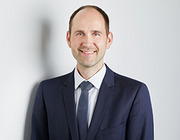Society is changing rapidly – in all areas of life. The uncertain global situation, the astounding advances in artificial intelligence and the question of how to create a sustainable future are challenging us all. Individuals and society as a whole are called on to actively shape this transformation. At the Bertelsmann Stiftung, we are participating in this task by identifying concrete solutions and implementing them together with our partners as a way of constructively driving change.
In 2023, this is how – across all our programs and competence centers and together with our affiliated organizations – we were able to have a significant, multifaceted impact. In the area of education, a cornerstone of every successful society, we once again drew attention to the pressing need for reform and the severe shortage of skilled professionals in Germany, while simultaneously proposing solutions. At the beginning of the year, we partnered with other institutions to call for an education summit, which 130 organizations have now joined. We successfully intensified our work with the younger generation, for example through our pilot project in Berlin which trained 141 young election workers. In addition, the “apprenticeship guarantee” that the foundation has advocated for years has now been enshrined in German law.
As a result of climate change, current technological advances and demographic developments, not to mention inflation and rising capital costs, companies face many open questions, which we have addressed together with our partners – for example, through a circular business offensive in the region of East Westphalia- Lippe, through proposals for reducing climate-damaging subsidies, and through an index that measures how attractive Germany is to skilled workers from abroad. Our activities relating to the labor market have also been particularly effective, including our Job Monitor, which we use to provide detailed monthly analyses of approximately 1,200 occupations for all of Germany’s states, counties and independent cities based on more than 60 million online job advertisements.
The multiple social crises of recent years and the resulting feeling of uncertainty among the public have highlighted the pressing need to further develop democratic structures and increase citizen participation. We have contributed effectively to achieving those goals through our projects designed to strengthen social cohesion and move forward the digital transformation of local government and public administration, and through our European network for promoting deliberative democracy. The geopolitical challenges confronting Europe have also not diminished, and the formation of new blocs and the armed conflicts in Ukraine and the Middle East require new responses. Using our eupinions survey, we were able to ascertain that, regardless of political affiliation, 87 percent of all EU citizens and 86 percent of all Germans support the creation of a common European defense policy.
The health-care sector is also facing ongoing change due to digitalization and structural shortcomings in the provision of care – a situation that impacts patients as well. Together with the World Health Organization (WHO), our experts launched an initiative to improve the reliability of the health-related information found online, and developed approaches that address key issues such as short- term inpatient care.
In addition to the impactful efforts outlined above, we further developed our own organization to make it more effective. For example, Daniela Schwarzer, an internationally recognized expert on Europe, cross-border developments and democracy, became the third member of our Executive Board. In addition, we began systematically training our employees across the foundation to build their AI skills, and we took further steps to achieve our ambitious targets for reducing the foundation’s carbon footprint. Moreover, our Ukraine taskforce continued its work, and we created a taskforce on the war in Gaza to pool our in-house expertise so we can respond quickly to developments as they unfold.
In the past year, we made €76 million available for our nonprofit activities. Our 2023 Annual Report provides an overview of the resources we committed to our project work, while providing insights into the issues we are addressing at the foundation.
If you would like more detailed information about specific topics or projects, please feel free to contact our experts directly. We look forward to hearing from you!

 >
>
 >
>


